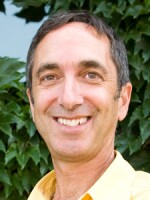Last month Generator, a new maker space in downtown Burlington, opened its doors to the public. Housed in the basement of the old Memorial Auditorium, it sported a clean, open floor plan, lots of tools for jewelry making and wood working, and some very high tech machines including a 3D printer and a laser cutter.
Maker spaces started popping up several years ago in big cities. The intent is to create a place where people can used shared equipment and new technology for creating new things. Some of the people who work in maker spaces are entrepreneurs: they run their design, furniture or engineering business from space they rent. Others are hobbyists: they use the common resources to get better at what they love to do. Still others are learners: maker spaces typically offer a wide range of classes so people can learn how to make and create using some of the equipment.
The ultimate goal of all of the maker spaces is that they will encourage creative technologists to grow and thrive. And that the stuff made in these spaces will impact the local economy in positive ways. Maker spaces, according to some, represent the democratization of design, engineering, fabrication and education.
In Burlington, almost 1,000 people attended the opening one recent Saturday. The Generator space calls itself a combination of artist studio, classroom and business incubator. It was just about a year ago that a group started meeting to bring this idea to life and the initial results are impressive.
And as if that weren’t enough, Champlain College launched its own maker space just a week after Generator. Housed in the Emergent Media Center in Burlington, this smaller maker space connects directly to ongoing student work. It’s completely in line with the college’s efforts to encourage its students to get their hands dirty with real work.
Champlain’s maker space was also beautifully designed. I wish my kitchen counters looked as good as the maker tables there.
To cap off its maker space opening, Champlain invited Intel Futurist Brian David Johnson to visit campus and talk with students, faculty and the public. And he left us with a telling quote: To change the future – he says - you have to change the story people tell themselves about the future they will live in.
Ultimately that’s what both maker spaces are trying to do for Burlington and Vermont: change the story we tell ourselves about doing business here. The idea is to shift the story away from how hard it is to do business here to stories that place a premium on creativity, technology, design and eager entrepreneurs.
You can’t help but feel hope and energy when you walk into either space. All we need now are enough people to do just that.




